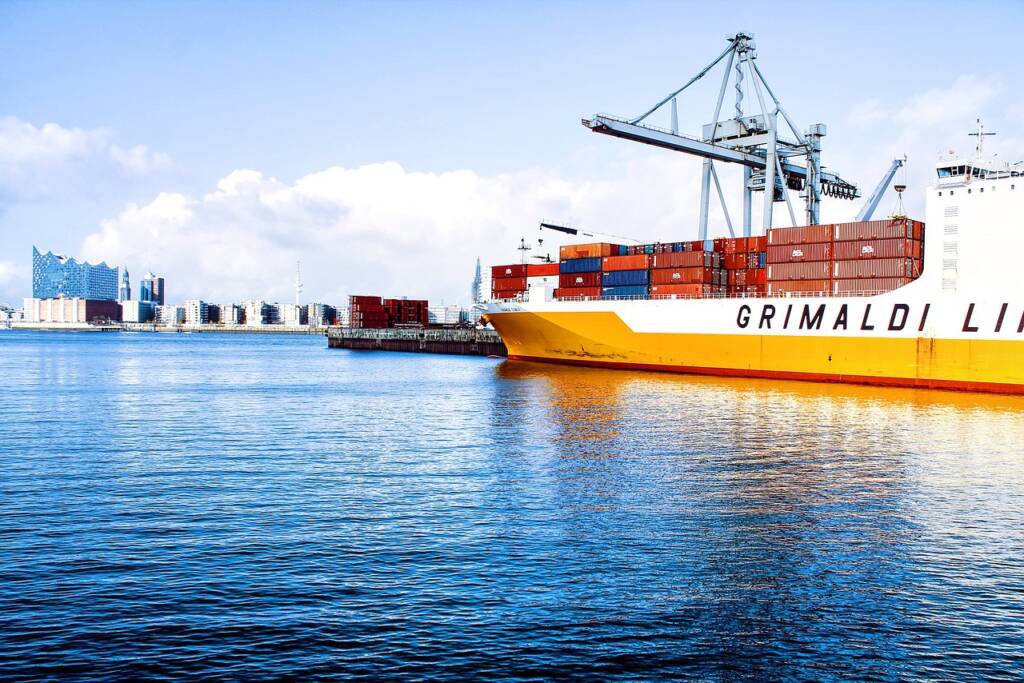With the shipping industry operating on razor-thin profit margins and tight schedules, sound working capital management is essential for businesses to survive, but also thrive. Since March 2020, the COVID-19 pandemic has shone a light not only on the critical nature of the industry in delivering essential goods globally, but also on the multitude of issues facing those involved in maritime trade. Most pressing of these is the substantial lack of trade finance and working capital programmes tailored to meet the industry’s needs. This leaves even the world’s strongest performing companies without readily available and easily manageable financing options.
Unfortunately for the shipping industry, the shift to working remotely has had a major impact on many banks’ documentary trade at a time when access to capital is more important than ever. This has only served to highlight the need for digitised trade and compliance processes that allow banks and their clients to operate in a paperless world.
Troubled waters for the global supply chain
For years, the shipping industry’s reliance on paper-based documentation and processes has been the cause of inefficiency. Each and every manual data entry site presents a point of failure, causing shipment delays which can last for days. The use of physical documentation has also resulted in a slew of human errors, duplications, and the enablement of fraud, feeding the vicious cycle of high costs and high risks for all involved.
Moreover, supply chains are now feeling the economic impact of the pandemic, with banks reducing risk exposure within shipping and becoming less willing to extend credit. Consequently, there is now an immediate and compelling need for the financial services industry to support shipping companies through trade and working capital finance programmes, allowing participants to access and manage the necessary liquidity to keep supply chains moving.

Shining a spotlight on maritime-specific financing issues
In the current climate, we are seeing a lot of treasury departments looking at how to optimise cash flows by working with suppliers to extend payment terms. The challenge is that without feasible costing and highly accessible credit solutions that work for both finance and operations teams, many in the industry have few options available to them.
Responsible for moving 90 percent of world trade, shipping has always been plagued with high associated costs and a complex chain of documentation. Added to the mix is the global pandemic wreaking havoc on supply chains, from production bottlenecks, to an extreme strain on global ports due to staff illness and quarantining.
“Responsible for moving 90% of world trade, shipping has always been plagued with high associated costs and a complex chain of documentation”
In the current fiscal climate, we are seeing a reduction in credit facilities and an increase in terms, including payment on delivery, spurred on by rising risk aversion, causing a domino effect within the maritime industry and its associated supply chains. The subsequent reduced trade volumes and activities are in turn reinforcing the existing liquidity challenges, with key players facing short repayment terms, upfront payments between ship operators and service providers, and the risk of non-payment for service provision.

Industry initiatives
In January 2020, Pole Star partnered with global trade finance technology provider TradeIX, to bring its multi-award winning PurpleTRAC regulatory technologies to the Marco Polo Network.
By providing PurpleTRAC as part of an ‘off-the-shelf’ solution for canal transit, high value port call, and bunker fuel financing programmes, Marco Polo provides all parties with a best in class compliance tool-kit, enabling the incorporation of compliance and reporting requirements into programme workflows, and the easy management and reporting of activities moving forwards.
By leveraging their vessel tracking service as a dedicated component in these workflows, we now have a solution offering operational visibility for financial institutions. This provides enormous efficiency gains for shipping companies’ operations teams, saving them 4-6 hours per port call by using automated location confirmation.
The partnership provides the Marco Polo Network’s member banks, their corporate clients, and the extended trade ecosystem with a fully automated vessel sanctions screening solution, allowing organisations to increase the capacity and velocity of their transactions, whilst facilitating rapid decision-making.
Marine fuel financing
With up to 70 percent of their outgoings going to marine fuels, bunker fuel purchases constitute the largest operating expense for any ship owner or operator. Marco Polo Payment Commitment provides organisations with a new transaction management platform and trade settlement instrument that simplifies operational processes.
By leveraging Payment Commitment to manage bunker fuel transactions, all parties are able to input and match required data across all key events in a transaction, based on predefined rules, automated event triggers, and made visible in real-time. Moreover, as a settlement instrument, this allows fuel suppliers to create programmes where risk can be transferred from buyers to buyers’ banks, allowing them to extend much needed credit to current and new buyers, and in turn gaining competitive advantage.
With few financing options currently working well for both buyers and suppliers, this allows both to access new working capital programmes tailored to their unique transaction requirements; providing buyers with the ability to extend payment terms and suppliers with early payments from buyers’ banks. Additionally, banks can more easily and cost-effectively operationalise these programmes due to the efficiencies afforded them. The payment commitment programme also affects other areas within the maritime domain, including port services disbursement account financing, and canal toll fee financing.
The next digital wave
This year has the potential to mark the end for paper-based processes within the maritime and trade financing industries. Undoubtedly, at some point we will face a global crisis similar to the one currently unravelling, and, as such, we require more than just a temporary fix. By moving to digitised processes, with access to faster, cheaper, and more efficient payment solutions, the industry will be future-proofed to better withstand shocks down the line.

































